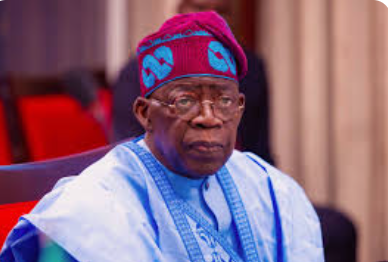
In a bid to revamp Nigeria’s education sector, President Bola Tinubu has given the green light for a comprehensive census of schools across the country, ranging from primary to tertiary levels. This effort aims to evaluate the conditions of schools, their residential facilities, proximity to one another, and overall educational infrastructure, among other crucial data points.
The assessment will also involve gathering data on the total number of teachers in Nigeria, including their qualifications, training received, as well as compiling information on all pupils and students in primary, secondary, and tertiary institutions. Details such as gender distribution, exam performance, and other relevant metrics will also be captured.
President Tinubu highlighted the urgent need for accurate and verifiable data in the education sector and emphasized that such data is essential for effective planning purposes. The ultimate goal of these system-wide policies, slated for implementation on Thursday, is to overhaul the education sector comprehensively. The aim is to enhance learning outcomes, skill development, increase enrollment rates, and ensure the academic welfare of Nigerian children, according to a statement released by the Presidency, signed by Tinubu’s Special Adviser on Media and Publicity, Ajuri Ngelale.
The statement, titled ‘President Tinubu establishes national education data system and approves skill development for all levels of education, teachers’ training and support nationwide,’ outlines the scope and importance of these initiatives.
According to the United Nations International Children’s Emergency Fund, Nigeria is home to one-fifth of out-of-school children globally, with a staggering 10.2 million children out of school at the primary level and 8.1 million at the junior secondary school level. This situation is exacerbated by challenges such as banditry, poverty, and the rising cost of living in the country.
Ngelale revealed that the approved policies, encapsulated as DOTS (Data Repository, Out-of-School Children Education, Teacher Training and Development, Skill Development and Acquisition), will serve as a compass for federal and state interventions in teacher training, support, and overall educational enhancement.
Moreover, the comprehensive data collection will provide insights into gender ratios, specific learning needs of students, as well as dropout rates, facilitating year-on-year monitoring and reporting.
To ensure effective dissemination and utilization of this data, a dedicated portal/dashboard will be established in various educational bodies, enabling real-time monitoring of educational progress by the federal government, state governments, and local authorities.
The introduction of this new data tracking system is poised to drive targeted interventions for students, especially focusing on out-of-school children, girls, and those with special learning needs.
As part of ongoing efforts to address out-of-school children’s education, the Federal Ministry of Education is currently implementing policies through its agencies, benefiting approximately two million individuals. These initiatives will be bolstered by the system-wide policies to further enhance educational opportunities for out-of-school children across the nation.
Regarding teacher development and support, the Presidency announced plans to empower educators with digital skills to integrate technology into classroom settings, ensuring technological literacy at all education levels.
Furthermore, emphasis will be placed on skill development and acquisition across all educational tiers, with President Tinubu approving the National Skills Framework to enhance skill diversity within the education sector, equipping Nigerian students with essential skills, knowledge, and values for societal productivity and functionality.
The National Skills Framework is crafted to match each educational level with appropriate skill sets, preparing generations of Nigerians to meet the demands of the evolving global economy. By closing skill gaps and enhancing education quality, these initiatives aim to address unemployment challenges and empower students with practical skills alongside theoretical knowledge.
Assurances have been given that upon full implementation, these programs will effectively align educational objectives, fostering a holistic improvement in the Nigerian education system as part of President Tinubu’s Renewed Hope Agenda.
